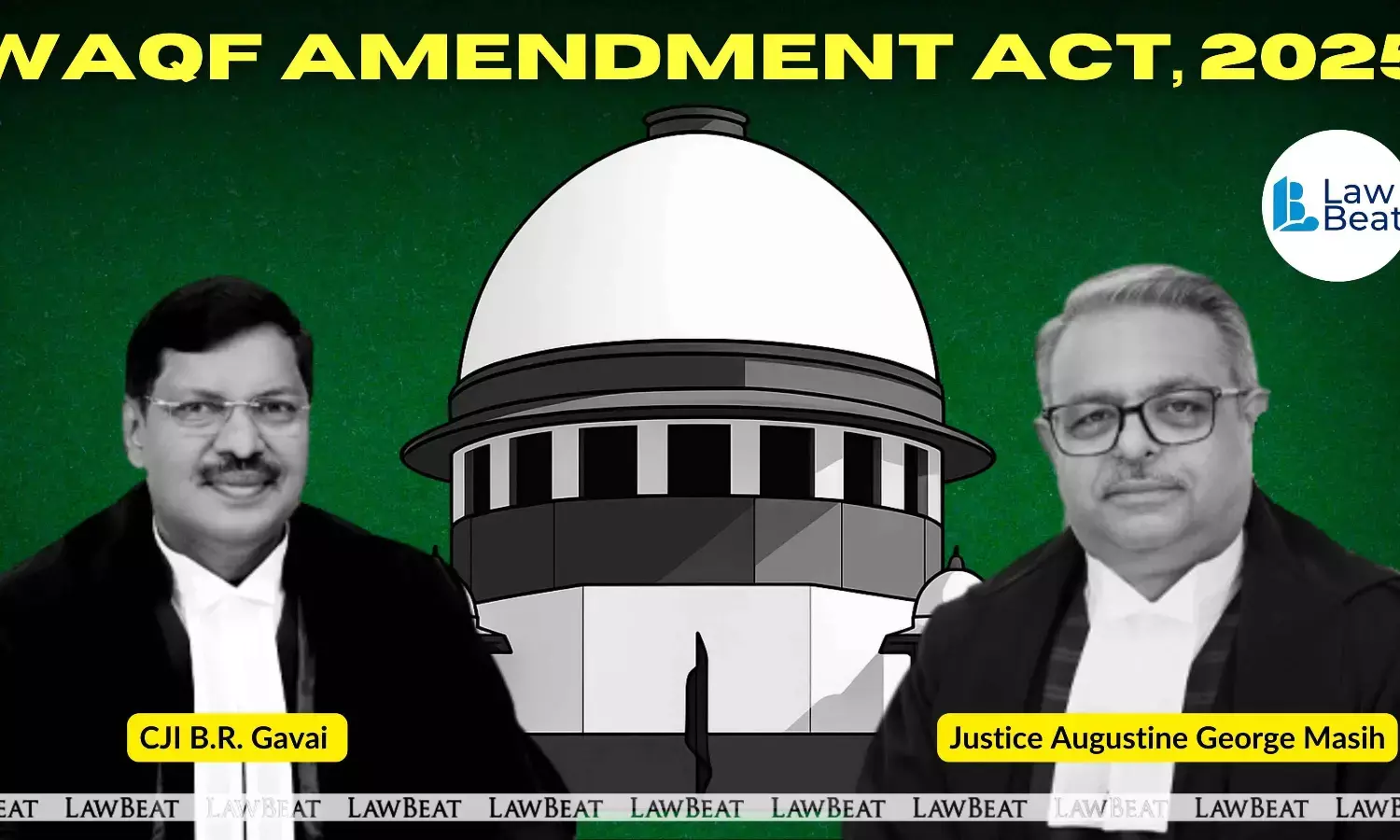Supreme Court To Hear Pleas Against Waqf Amendment Act, 2025 On May 20

The Supreme Court on Thursday agreed to hear a batch of petitions challenging the constitutional validity of the Waqf (Amendment) Act, 2025.
The Bench led by Chief Justice of India (CJI) BR Gavai, along with Justice AG Masih, indicating that the initial focus would be limited to interim relief.
Solicitor General Tushar Mehta, appearing for the Union, informed the Court that the government would be filing a concise note addressing the three key issues identified by the Court.
Senior Advocate Kapil Sibal, representing one of the petitioners, urged the Bench to take up the matter, stating: “My Lords, please be kind enough to take up the Act.”
The CJI queried, “Are we hearing the matter for interim relief or final disposal?”
SG Mehta responded that the Union was ready to argue “today or on any other day,” while Sibal also confirmed availability.
SG Mehta added that if the Court was only considering interim relief, “it won't take much time.”
However, Sibal estimated the arguments would take “around two hours.”
SG Mehta noted the importance of judicial time given that the matter involved “a stay of a statutory provision.”
Sibal offered to circulate a prepared note on constitutional issues to reduce the length of the hearing, a suggestion welcomed by the CJI.
CJI remarked, “Rather than hearing five separate matters, let’s focus on the key issues necessary for interim relief,” to which Sibal responded, “There are no conflicting voices; we will submit a unified note.”
During the hearing, Advocate Banerjee sought permission to speak, citing his involvement with the Joint Parliamentary Committee (JPC) that examined the amendments. The CJI asked, “Will you be speaking as a parliamentarian or as an advocate?” SG Mehta clarified that the Court had consolidated five petitions along with interventions for structured arguments.
The CJI noted, “We cannot prevent anyone from arguing, especially after the start of live-streaming. Lawyers, parliamentarians – all are welcome.” However, when an advocate pointed out that all five petitioners were from the Muslim community and sought intervention to avoid any “polarised impression”, the CJI firmly stated, “That will not be possible.”
CJI added, “This way we will not even be in a position to start. We’ll give you two hours, please divide the time among yourselves.”
Advocate Vishnu Shankar Jain raised a related issue, seeking to challenge the Waqf Act, 1995, citing the continued operation of Waqf Tribunals as unconstitutional.
The CJI responded, “Right now, we are only addressing the issue of interim relief,” and made it clear that the Court would “proceed as per the last order.”
When Jain persisted, the CJI pointed out, “If the tribunal has existed since 1995 and hasn’t been challenged till now…”
SG Mehta interjected, urging, “Mr. Jain, let’s not deviate.”
The CJI concluded, “How can we allow a challenge to the 1995 Act within proceedings focused on the 2025 Amendment?”
The matter is listed for hearing on May 20.
Previously before Court
It is to be noted, that on May 5, the Supreme Court Bench led by then CJI Sanjiv Khanna had observed that the matter will be heard by a different bench as he was demitting office on May 13.
During the brief proceedings, then CJI Khanna had remarked that the Bench had not delved into the counter affidavit in depth. He had noted that while certain issues around registration and statistics had been raised, “those will require closer scrutiny.” He clarified that he did not intend to pass any interim order or reserve judgment at this stage. “If all parties agree, we can list the matter before a bench led by Justice Gavai on Wednesday,” the CJI had suggested.
The All India Muslim Personal Law Board, in a rejoinder to the preliminary affidavit filed by the Centre, last month have asserted that the recent legislative changes in the Waqf (Amendment) Act, 2025, infringe upon fundamental rights and were passed through a flawed parliamentary process. The Board argued that the Respondents’ defense, that the amendments do not affect essential religious practices, is legally untenable. It stated that compelling the Petitioners to undergo the “Essential Religious Practices” (ERP) test is not only constitutionally misplaced but also ignores the evolution of Indian constitutional jurisprudence.
Last month, the Central Government has submitted a detailed preliminary affidavit before the Supreme Court, defending the constitutional validity of the Waqf (Amendment) Act, 2025, and opposing interim reliefs sought by petitioners challenging the law.
About the Bill
Case Title: In Re: The Waqf (Amendment) Act, 2025 (1)
